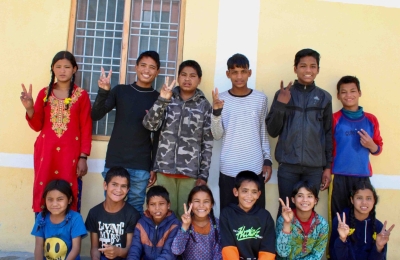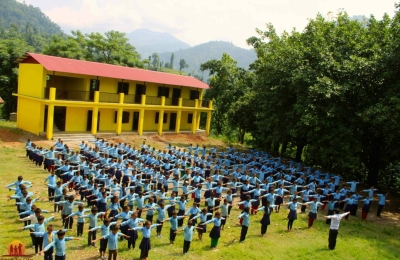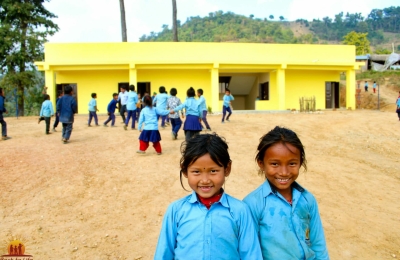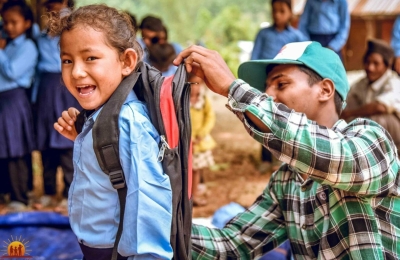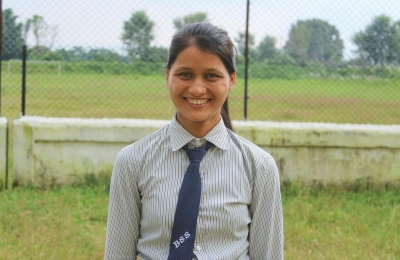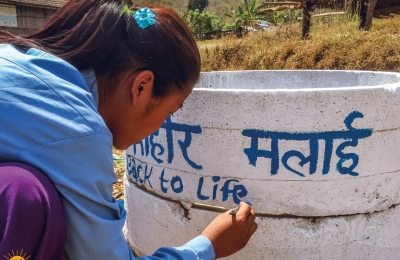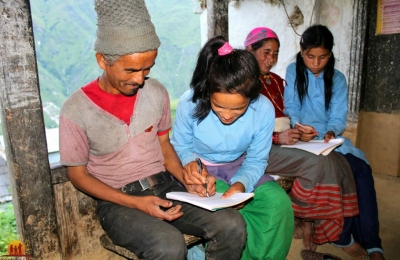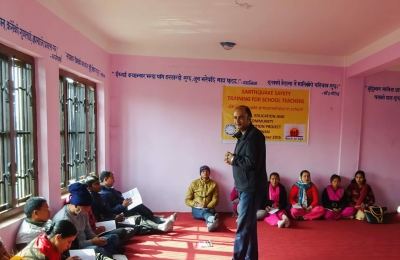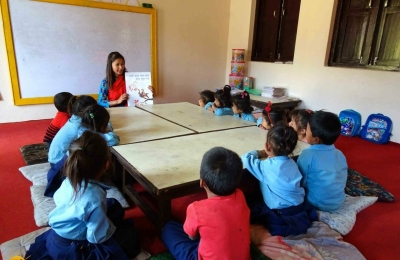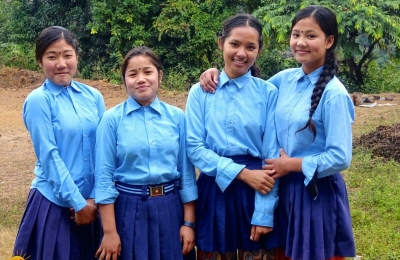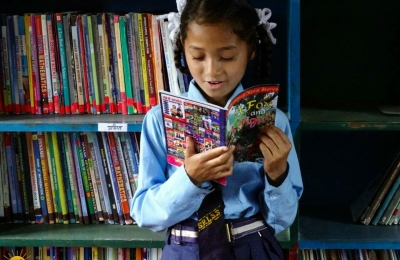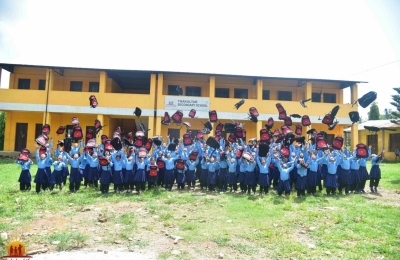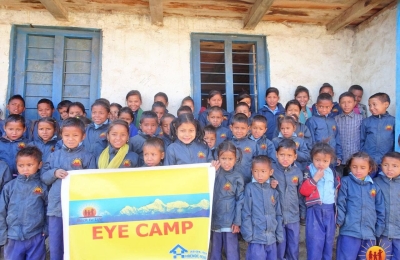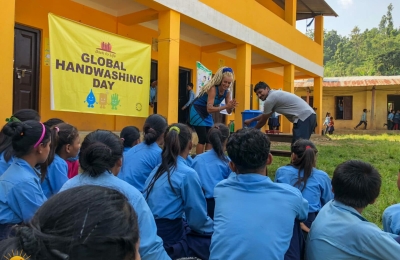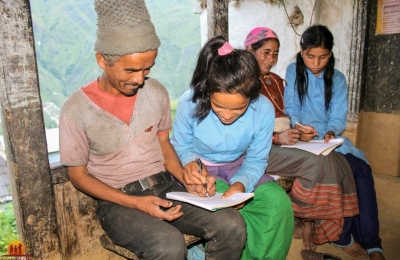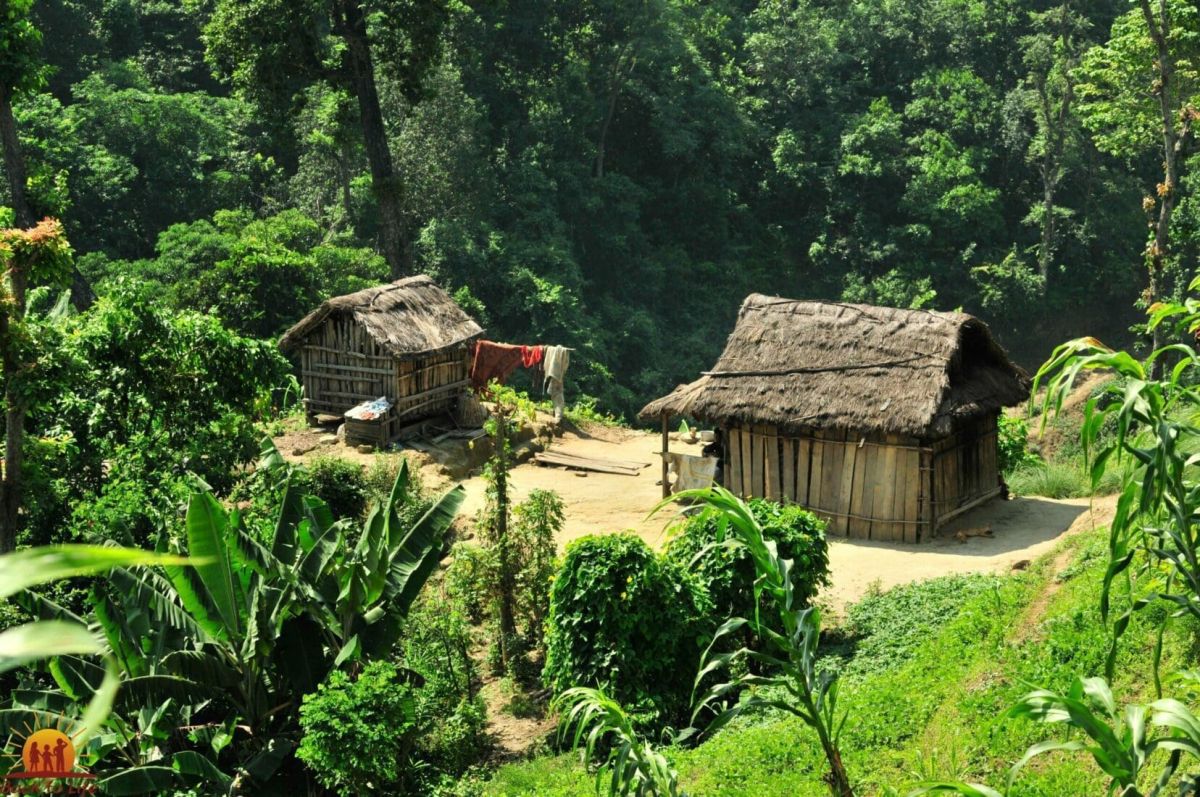
In the small wooden house that is only covered with straw, the ragged sleeping mats lie on the floor. A “jaabi” hangs on the wall, a bag made of plant fibers. It collects wild fruits, berries and edibles from the neighboring forest. The Chepang still have their nomadic life in their blood, even if they were forcibly settled almost 100 years ago. The peaceful, friendly ethnic group is considered the forgotten ethnic group of Nepal. They are among the poorest, the uneducated, who would be reluctant to ask for help themselves – even if they were ignorant of their rights.
A nomandic culture that is being lost
The “connoisseurs of the forest” are increasingly losing their old culture. Their own language “Chepang” is still familiar, many other things are forgotten through the frequent conversion to Christianity and word of mouth: festivals, indigenous practices, shamanic rites and the knowledge of the healing powers of nature.
Faith, ancestral and birth ritual
The ancestor worship through the great festival “Kulain Puja” is still of particular importance. The long ceremony is held by a “pande”, the clan priest. Old traditions also shape childbirth: after the birth, the mother is considered unclean and the household has to undergo an eight-day cleansing ritual. The mother is only allowed to return to normal life after 22 days.
Life and nutrition
When the former hunters and gatherers were forced to settle by the Nepalese government, they continued to seek proximity to the forest. However, the poor arable land there brings so little yield that the entire harvest is often only enough for half a year. Collected forest fruits have to complement the meals, a lot has to be bought. The life of the Chepang also depends on the wages that the men outside earn. It’s barren and hard.
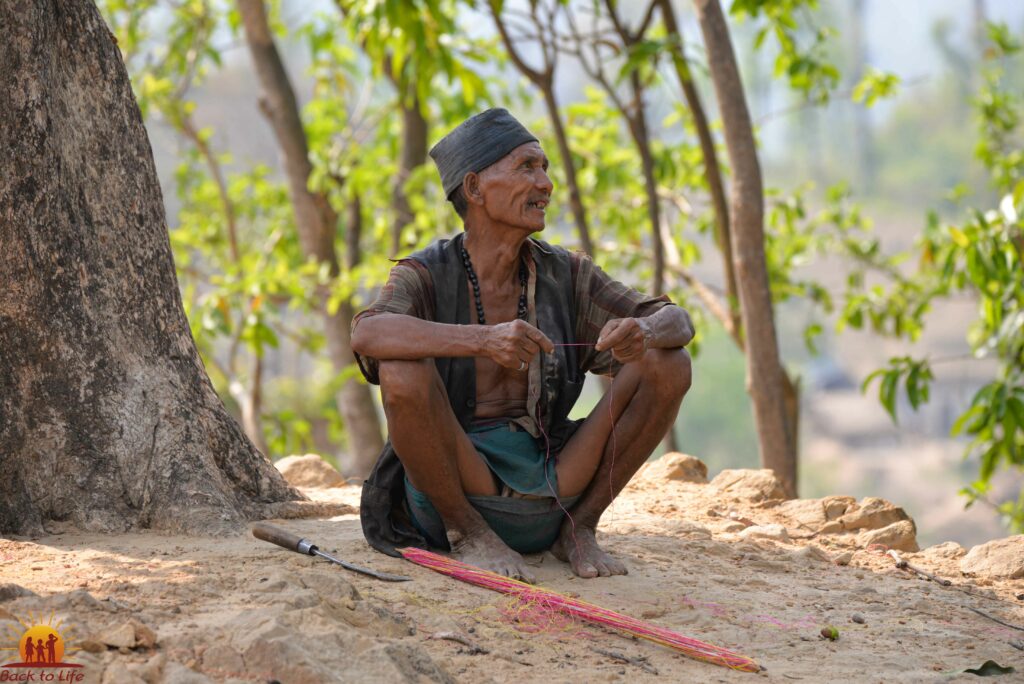
Our commitment to the almost forgotten Chepang
The Chepang live in our project region Chitwan. As a small minority that has almost been forgotten, they receive next to no help. That is exactly the reason for our commitment. We currently support 600 girls and boys in the region through our school programs, among other things. 200 of them belong to the Chepang group. Since agriculture does not yield enough, we also encourage families to raise chickens and goats. Unfortunately, due to the great poverty, many men leave their families and work on construction sites. Young men often seek their fortune in the big cities or abroad.
Personal insights into the life of a Chepang family
11 year old Sundari waves goodbye. She is in the 5th grade of the Dhamili School. She lives in one with her sisters Melina (9), Ijarayali (8) and little brother Prithvi (4), parents Chandra Bahadur (31) and Chandrimaya (30) and grandparents Bir Bahadur (80) and Mailimaya (78) simple Chepang house. Inspired by our health education, the family also built a toilet, solar cells from our environmental program provide electricity. From the initial stock of our income promotion program, the family’s livestock has now grown to 3 goats, 2 cattle and 5 chickens with a rooster; The grandparents in particular take care of their care. As the oldest daughter, Sundari helps diligently with the household. She fetches water, feeds the animals, cooks and does the dishes. The family’s three daughters receive sustainable support through the Back to Life sponsorship program. So they can go to school and learn for a more self-determined future.
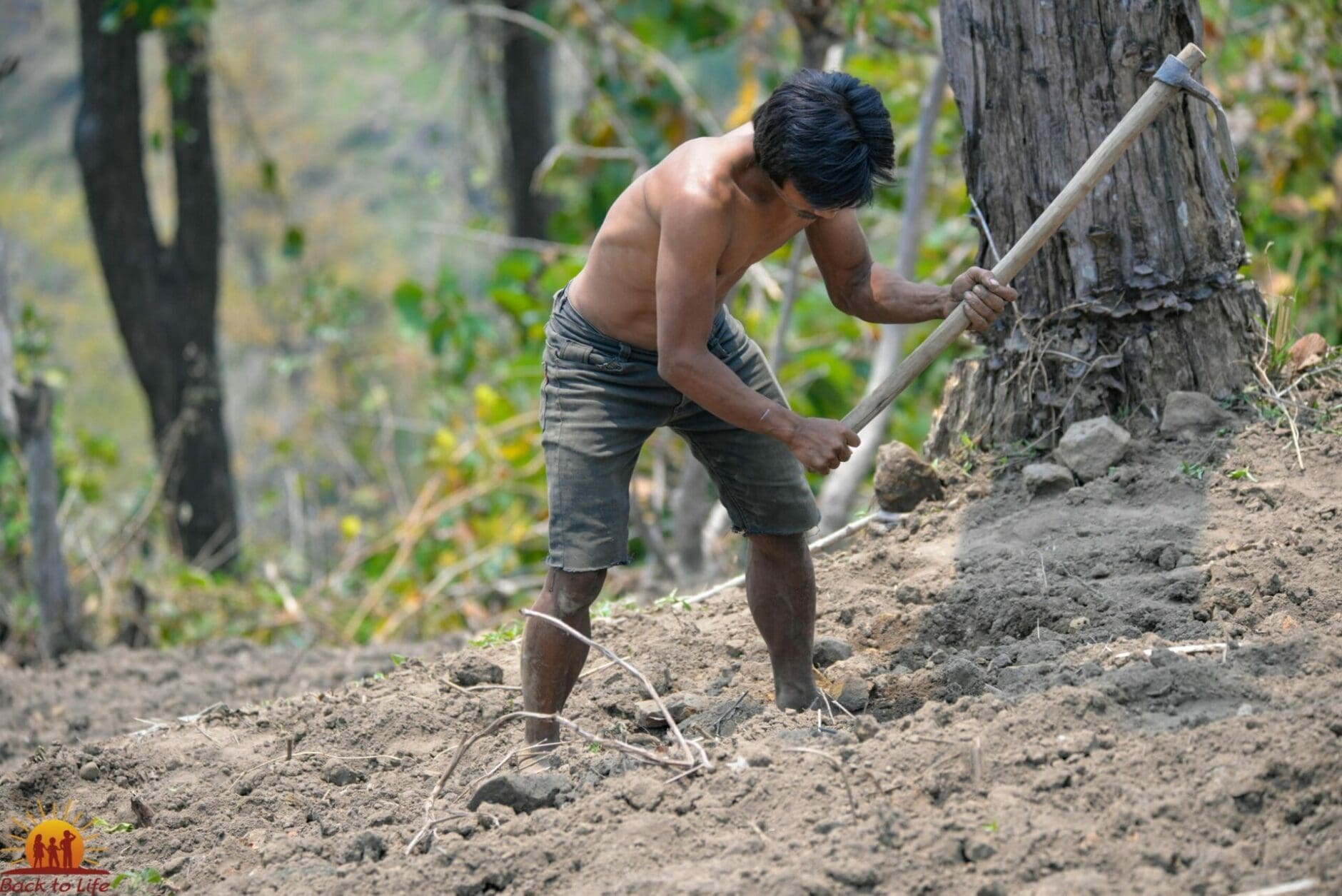

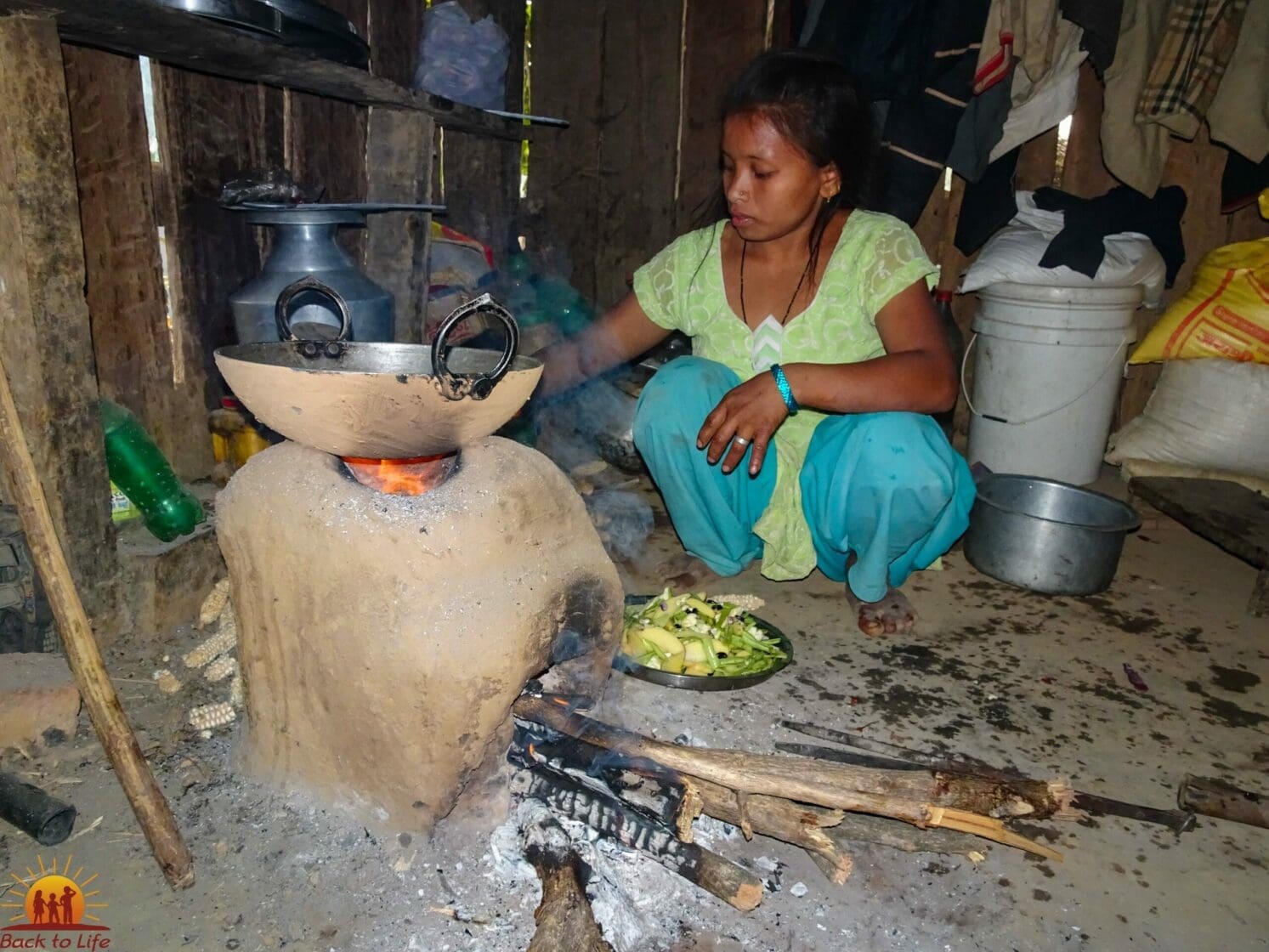

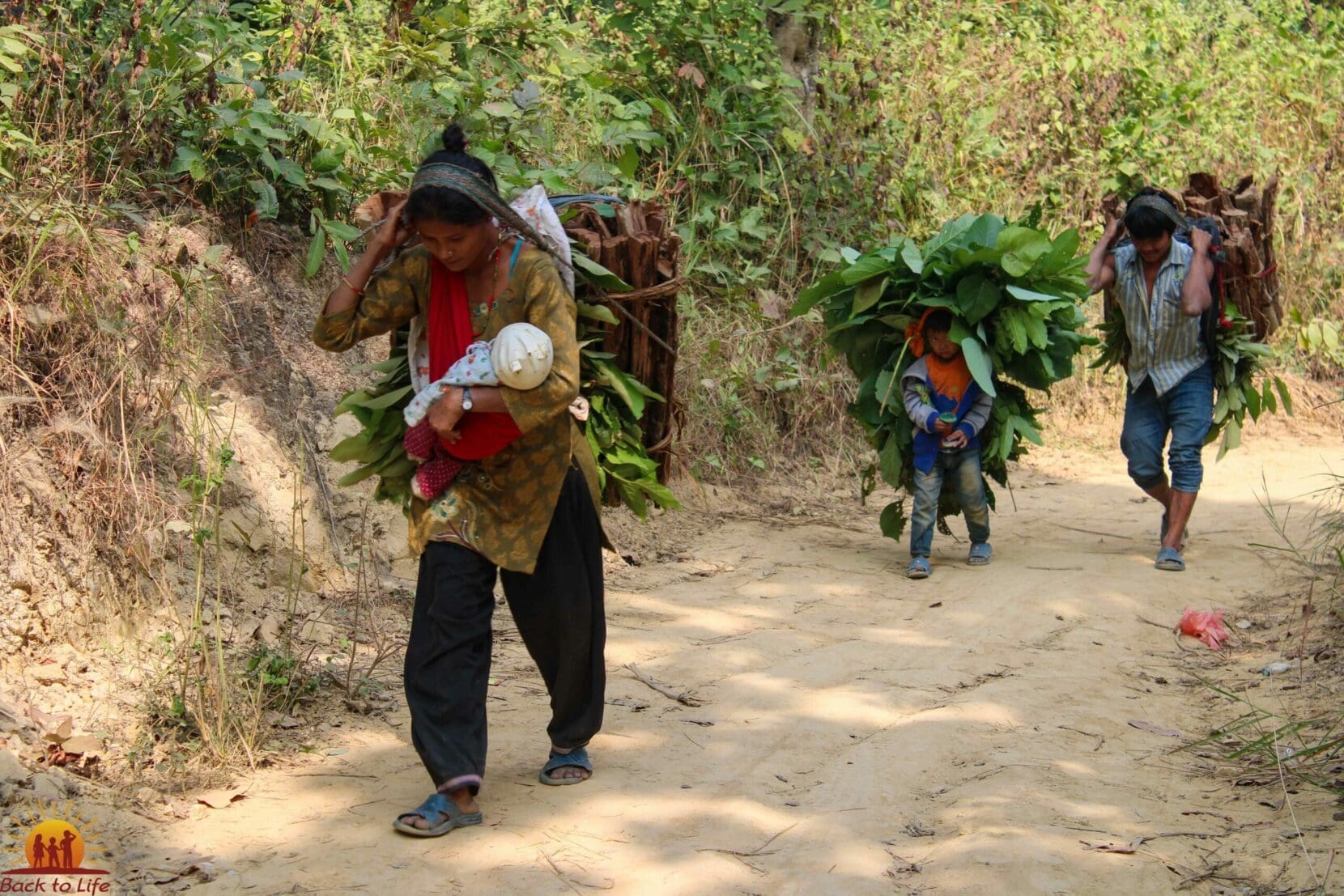

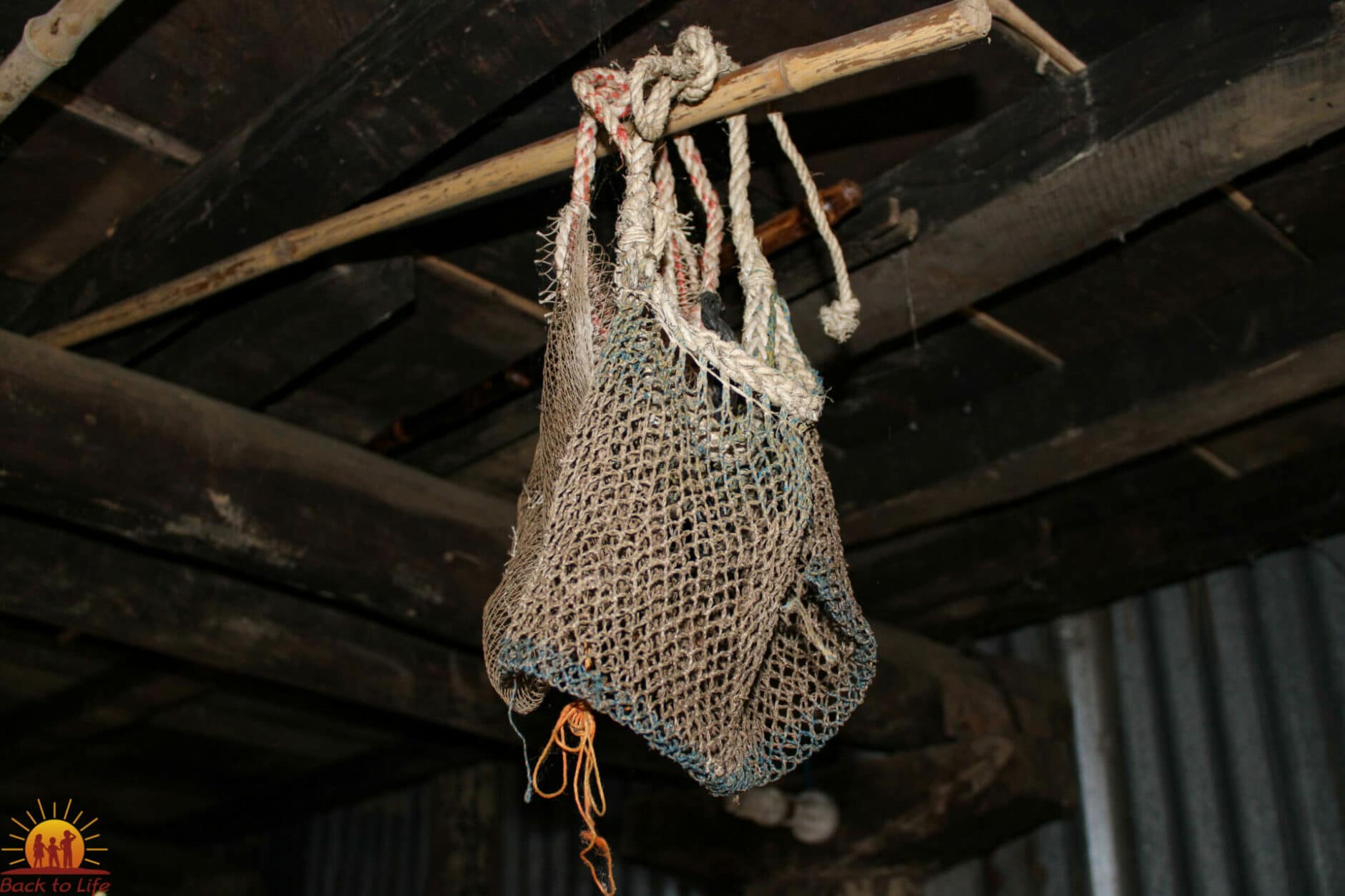

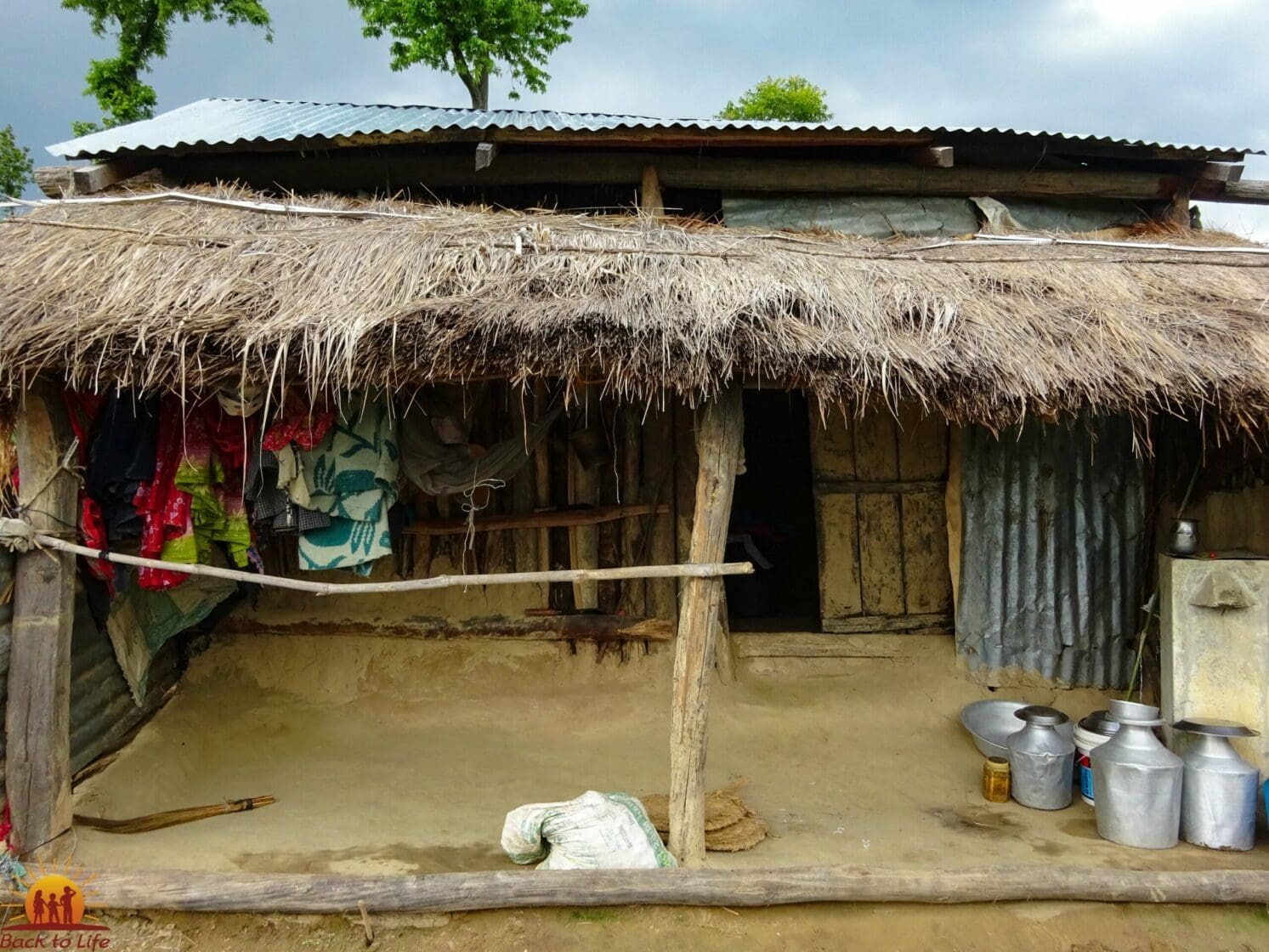

The Chepang are the smallest minority in Nepal with only around 68,000 people. They live in Chitwan and the adjacent areas. They are considered the forgotten people among the almost 29 million Nepali.

